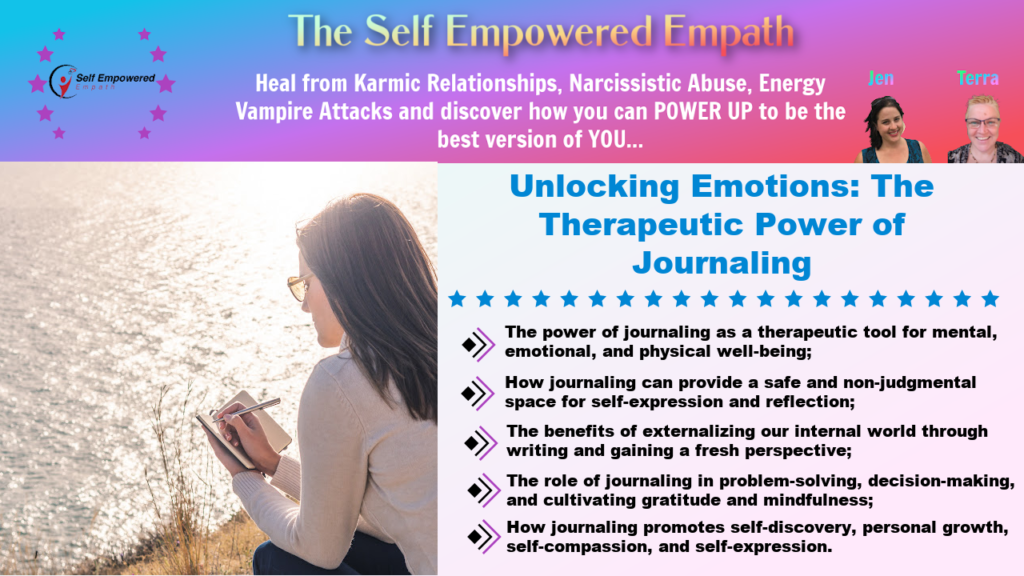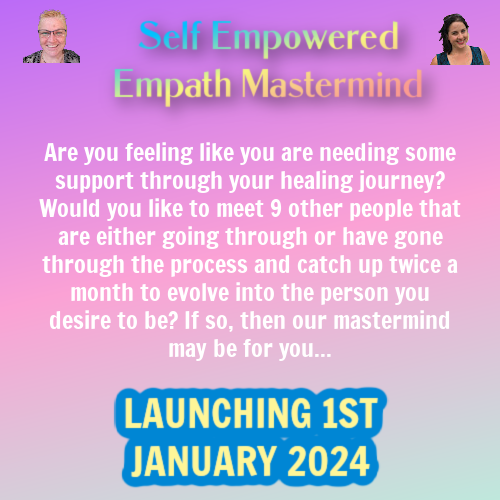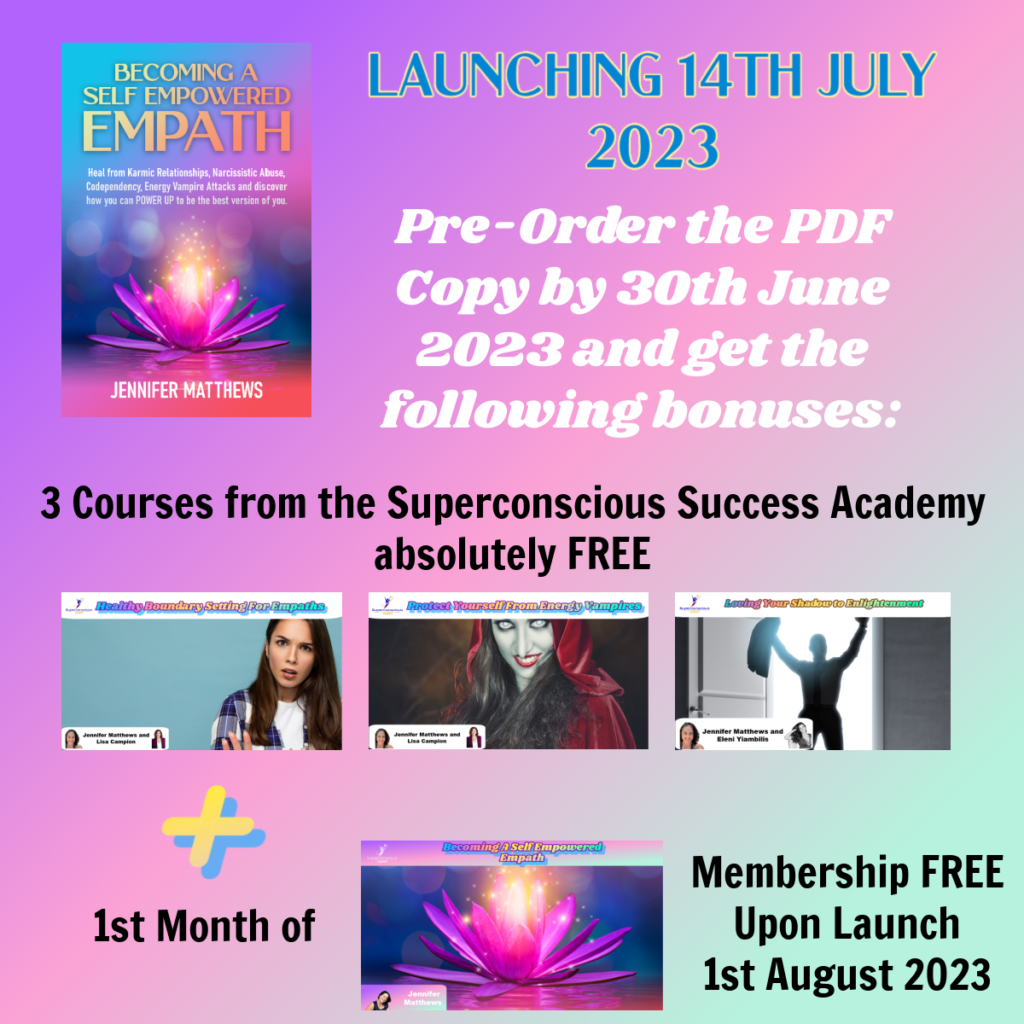
In this blog post, you’ll embark on a transformative journey of self-discovery and emotional healing through the practice of journaling. Explore various techniques like freewriting, gratitude journaling, and reflective journaling to release emotions, gain clarity, and achieve balance and discover the power of journaling prompts and exercises to access buried emotions, nurture your empathic nature, and navigate relationships. Then you can finally discover how you can cultivate a lifelong journaling routine for emotional well-being, personal growth, and an authentic life and prepare to thrive through the healing power of journaling.
2. Journaling Techniques for Emotional Release
Getting started with journaling can feel overwhelming, especially if you’re new to the practice. However, with a few practical tips and techniques, you can easily dive into the world of journaling and begin reaping its many benefits.
First and foremost, remember that there are no rules when it comes to journaling. It’s a personal and individual practice, so feel free to make it your own. Start by finding a notebook or journal that you feel drawn to, whether it’s a simple notebook or a beautifully designed journal. Choose something that resonates with you and makes you excited to put pen to paper.
Next, set aside dedicated time for journaling. It could be in the morning to start your day with intention or in the evening to reflect on your day. Find a time that works best for you and try to make it a consistent part of your routine. This will help you establish a journaling habit and make it easier to stick with.
When you sit down to journal, allow yourself to let go of any expectations or judgment. Remember, journaling is a safe and non-judgmental space for self-expression and reflection. It’s okay if your writing feels messy or unstructured. Just let your thoughts flow freely onto the paper without worrying about grammar or spelling. Embrace imperfection and allow yourself to be vulnerable.
There are so many different styles of journaling you can practice, of which some include:
Freewriting
This is possibly one of my favorites and is so easy to do. First and foremost, freewriting is a journaling technique that offers emotional release. It involves writing continuously without stopping, allowing thoughts and emotions to flow freely. Moreover, by expressing without judgment, freewriting creates a safe space for exploring and releasing deep emotions. Additionally, this process provides relief, clarity, and insight, enabling healing and personal growth.
Gratitude Journaling
Gratitude journaling is a simple and effective practice that can promote emotional release and well-being. By regularly writing down the things you are grateful for, you can shift your focus towards positivity and cultivate a sense of appreciation. This practice allows you to acknowledge and honor the blessings in your life, no matter how big or small. Additionally, by expressing gratitude, you can release negative emotions, let go of stress, and experience a greater sense of joy and contentment. Moreover, gratitude journaling creates a space for reflection and encourages a mindset of abundance. It helps you consciously cultivate gratitude for the present moment and the blessings that surround you.
Utilising Journaling Prompts
Journaling prompts can be a powerful tool for emotional release. When we engage with these prompts, we create a safe and supportive space for exploring and expressing our deepest emotions. By selecting a prompt that resonates with us, we can dive into our thoughts and feelings, allowing them to flow onto the page without judgment or self-censorship. Through this process, we can gain clarity, release pent-up emotions, and find healing. Moreover, journaling prompts provide a gateway to our inner world, allowing us to access and process our emotions in a healthy and constructive way. Furthermore, on the next page, I will actually give you some journaling prompts you can use.
Bullet Journaling
Bullet journaling is a versatile and effective method for emotional release. Moreover, by combining journaling with organization and note-taking, bullet journaling provides a structured format to express and process emotions. The system allows you to track your moods, additionally identify emotional patterns, and reflect on your feelings in a visual and organized manner. The act of creating bullet points, symbols, and signifiers helps externalize and detach from difficult emotions, thus allowing for a sense of clarity and control. As you engage in bullet journaling, you can release pent-up emotions, furthermore gain a deeper understanding of yourself, and cultivate emotional well-being.
Art Journaling
Art journaling is a powerful and accessible method for emotional release. By combining writing with artistic expression, in addition, art journaling provides a safe and creative space to explore and express our emotions. Moreover, through the use of various art mediums, such as paints, markers, or collage, we can visually represent our thoughts, feelings, and experiences. This process allows us to tap into our subconscious, thereby uncovering hidden emotions and facilitating their release. Art journaling encourages self-reflection, fosters self-discovery, and promotes self-expression, enabling us to let go of emotional baggage, find healing, and cultivate emotional well-being. It offers a unique and personal approach to processing emotions, making it a valuable tool for anyone seeking a creative outlet for emotional release.
Reflective Journaling
Reflective journaling is a valuable approach for emotional release and healing. By engaging in this practice, you create a safe and structured space to explore and process your emotions. In addition, reflective journaling involves reviewing your past entries and deeply reflecting on the patterns, themes, and insights that emerge. This practice allows you to gain a deeper understanding of yourself, track your emotional journey, and identify areas for personal growth. Through the act of reflection, you can release pent-up emotions, gain clarity, and find healing. Furthermore, reflective journaling serves as a powerful tool for accessing and processing your emotions in a healthy and supportive way, ultimately leading to emotional release and personal transformation.











